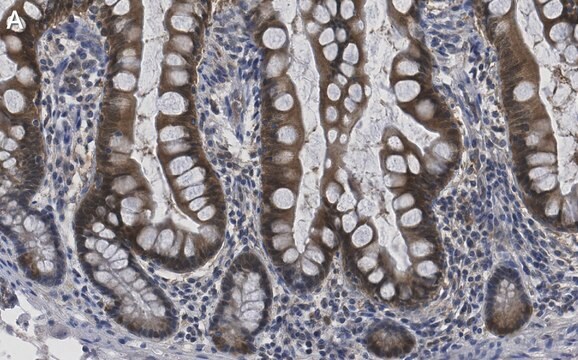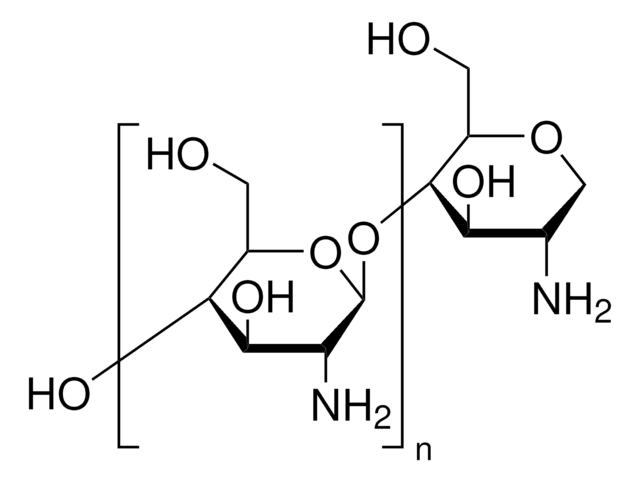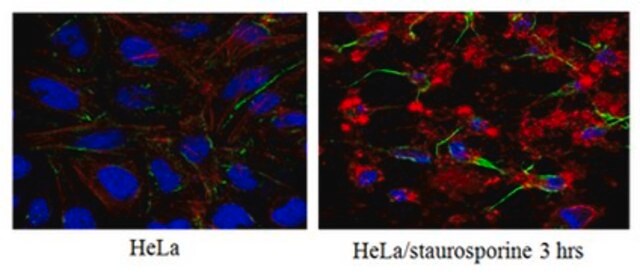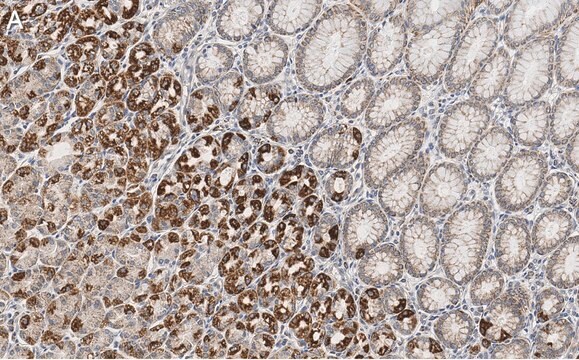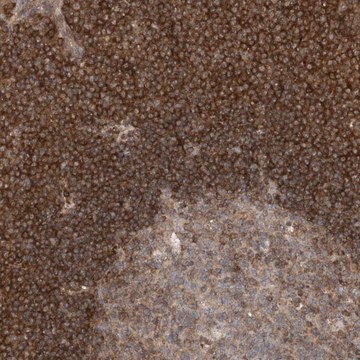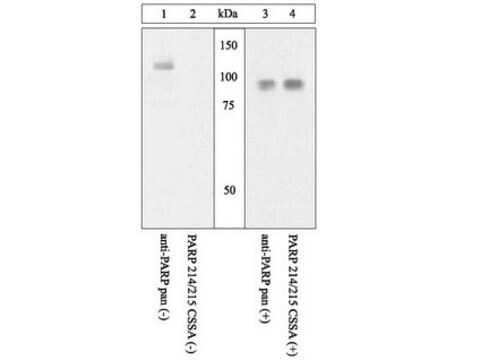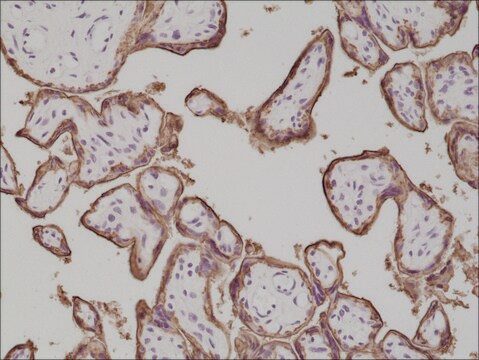C1104
Monoclonal Anti-Caspase 7 antibody produced in rat
clone 11E4, purified immunoglobulin, buffered aqueous solution
About This Item
Prodotti consigliati
Origine biologica
rat
Coniugato
unconjugated
Forma dell’anticorpo
purified immunoglobulin
Tipo di anticorpo
primary antibodies
Clone
11E4, monoclonal
Forma fisica
buffered aqueous solution
PM
antigen (full length) 35 kDa
antigen (subunit) 20 kDa
Reattività contro le specie
human
tecniche
immunoprecipitation (IP): suitable
microarray: suitable
western blot: 2-4 μg/mL using a whole extract of cultured human acute T cell leukemia Jurkat cells
Isotipo
IgG2a
N° accesso UniProt
Condizioni di spedizione
dry ice
Temperatura di conservazione
−20°C
modifica post-traduzionali bersaglio
unmodified
Informazioni sul gene
human ... CASP7(840)
Descrizione generale
Immunogeno
Applicazioni
- Immunoprecipitation
- Microarray
- Western blotting at a concentration of 2-4μg/mL using a whole extract of cultured human acute T cell leukemia Jurkat cells.
Azioni biochim/fisiol
Nota sulla preparazione
Esclusione di responsabilità
Non trovi il prodotto giusto?
Prova il nostro Motore di ricerca dei prodotti.
Raccomandato
Codice della classe di stoccaggio
10 - Combustible liquids
Certificati d'analisi (COA)
Cerca il Certificati d'analisi (COA) digitando il numero di lotto/batch corrispondente. I numeri di lotto o di batch sono stampati sull'etichetta dei prodotti dopo la parola ‘Lotto’ o ‘Batch’.
Possiedi già questo prodotto?
I documenti relativi ai prodotti acquistati recentemente sono disponibili nell’Archivio dei documenti.
Il team dei nostri ricercatori vanta grande esperienza in tutte le aree della ricerca quali Life Science, scienza dei materiali, sintesi chimica, cromatografia, discipline analitiche, ecc..
Contatta l'Assistenza Tecnica.